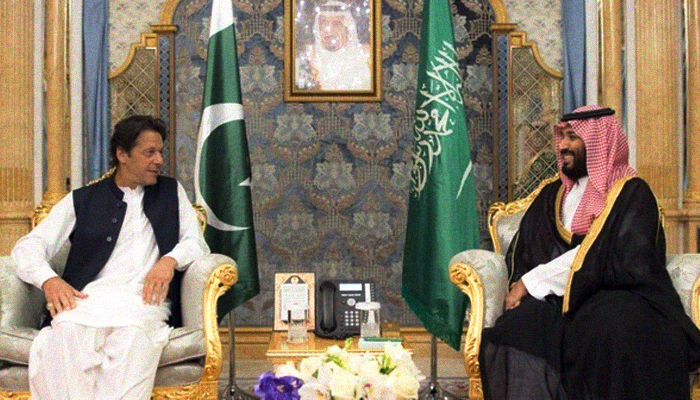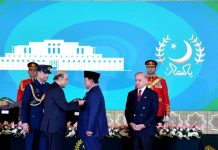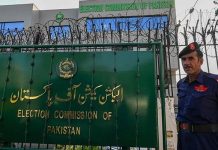
ISLAMABAD/RIYADH: Prime Minister Imran Khan arrived in Saudi Arabia on a two-day official visit to attend a much-anticipated investment conference that numerous other world leaders and corporates have skipped over the issue of dissident journalist Jamal Khashoggi’s death.
Khan, who landed in Medina and was welcomed by Governor Faisal bin Salman bin Abdulaziz Al Saud, paid a visit to the Roza-e-Rasool (PBUH) before departing for Riyadh to attend the Future Investment Initiative (FII) conference.
In Riyadh, Governor Faisal bin Bandar Al Saud and Khan Hasham Bin Saddique, the Pakistani Ambassador to Saudi Arabia, welcomed him at the King Khalid International Airport.
“The reason I feel I have to avail myself of this opportunity is because, in a country of 210 million people right now, we have the worst debt crisis in our history,” he mentioned to the Middle East Eye (MEE) in an interview that was published.
The prime minister is also slated to meet Crown Prince Mohammed bin Salman, who, himself, is surrounded by controversy in what the world is calling Riyadh’s alleged involvement in the orchestration of Khashoggi’s murder in the Saudi consulate in Istanbul, Turkey.
The Pakistani premier told an interviewer before leaving for Riyadh that despite his concern over Khashoggi’s death, he could not skip the conference as “we’re desperate” for possible Saudi loans to shore up Pakistan’s economy.
“Unless we get loans from friendly countries or the IMF [International Monetary Fund], we actually won’t have, in another two or three months, enough foreign exchange to service our debts or to pay for our imports. So we’re desperate at the moment.”
This marks Khan’s second visit to Saudi Arabia in just over a month, but he has not succeeded in securing significant financial assistance to stave off a looming balance of payments crisis. He could not pass up the invitation to meet Saudi leaders again, he told the MEE.
The prime minister last toured Saudi Arabia on September 18.
Khan is accompanied by Shah Mehmood Qureshi, Asad Umar, and Fawad Chaudhry, the ministers of foreign affairs, finance, and information, respectively, as well as Pakistan Board of Investment Chairperson Haroon Sharif and renowned economist Abdul Razak Dawood, the advisor to Khan on commerce, textiles, industries production, and investment.
Noting the presence of Umar and Dawood, a statement from Khan’s office on Monday said the visit would “give a chance to connect with those people who are interested in investing in Pakistan”.
Islamabad has already asked the IMF to open negotiations for the country’s second potential bailout in five years while Khan, who took office in July, seeks alternatives to the tough conditions the international financial body is likely to impose for loans, limiting his vision of an Islamic welfare state.
The State Bank of Pakistan’s (SBP) foreign reserves dropped this month to $8.1 billion, a four-year low and barely enough to cover sovereign debt payments due through the end of the year. The current account deficit has swelled to about $18 billion.
Khan has blamed the previous government’s policies for the ballooning current account deficit.
In response to a question, he told the MEE that he was concerned over the “shocking” death of Khashoggi — a US resident and Washington Post columnist — after he entered the Saudi consulate in Istanbul.
“The Saudi government will have to come up with an answer… We wait for whatever the Saudi explanation is,” he was quoted as saying. “We hope there is an explanation that satisfies people and those responsible are punished.”
Dubbed as “Davos in the Desert,” the conference was scheduled host leading businesspersons, investors, corporate giants, representatives of hi-tech industry, and major media outlets at one platform, the Foreign Office of Pakistan said in a press statement earlier.

Khan’s participation on the first day of the conference, which provides an opportunity to interact with important business leaders who are interested in investing in Pakistan, is aimed to projecting the country’s economic and investment potential as well as its vision for the next five years, the statement added.
The FII conference is now an annual feature in Saudi Arabia, with its first iteration being held last year, wherein some 3,800 people from 90 countries participated. This year’s conference is also likely to attract participation from a large number of leading figures.
Khan’s presence “signifies our solidarity with the Kingdom in its efforts to become an emerging hub of international business and investment”, the FO said further.
On the other hand, dozens of the confirmed participants had earlier dropped out in order to boycott Saudi Arabia over Khashoggi’s death.
Separately, the premier’s schedule also includes calling on King Salman bin Abdulaziz Al Saud and meeting the Crown Prince Mohammad Bin Salman, with whom he would discuss matters of mutual interest.
In response to a question, Khan also called on the US to abandon its push for new sanctions against Iran, saying the move could lead to wider conflict. “The last thing the Muslim world needs is another conflict.
“The Trump administration is moving towards one,” he told the newspaper.
Regardless, he said, Pakistan was in a position where it can play a role in trying to eliminate the tensions between Riyadh and Tehran. To another question regarding the South Asian region, he said the Taliban and the Afghan government would very likely soon come to a joint solution.



